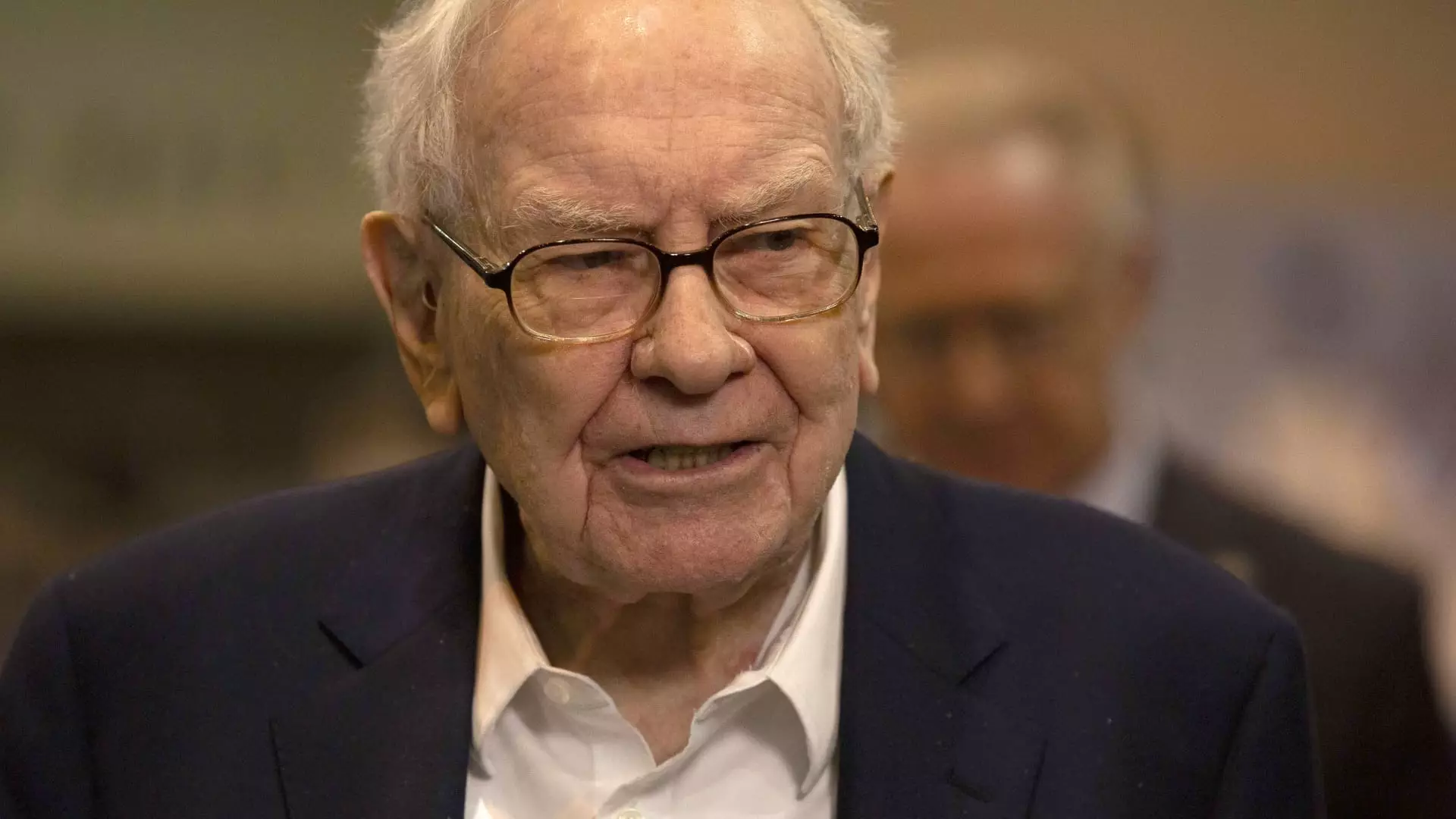Berkshire Hathaway, the multinational conglomerate led by the legendary Warren Buffett, finds itself in a unique position as it navigates through a record-breaking cash reservoir and ongoing stock market volatility. As of the third quarter of this year, Berkshire’s cash reserves skyrocketed to an unprecedented $325.2 billion, significantly up from $276.9 billion just a quarter prior. This dramatic increase raises questions about the company’s strategy and Buffett’s investment philosophy during a turbulent economic climate.
Berkshire’s cash influx has been notably attributed to Buffett’s strategic decision to divest substantial portions of some key equity holdings, particularly in tech giants like Apple and Bank of America. In a fascinating turnaround, around 25% of Berkshire’s stake in Apple was liquidated during the last quarter, marking the fourth consecutive quarter in which the company has reduced its exposure to this tech behemoth. Similarly, since July, Buffett’s firm has realized over $10 billion from its longstanding investment in Bank of America. This trend of stock selling not only accumulates cash but also raises eyebrows regarding Buffett’s outlook on the stock market and potential future investments.
Buffett’s ongoing stock-selling spree has amounted to a staggering $36.1 billion in divestiture just within the third quarter. Notably, amid this selling activity, Berkshire abstained from repurchasing any of its own shares, further highlighting a cautious approach in this current financial landscape. This is particularly interesting, given that repurchase activities had already tapered off earlier this year, coinciding with the company’s shares outperforming broader market indices to reach all-time highs.
Berkshire Hathaway’s Class A shares have demonstrated resilience, achieving a remarkable 25% increase in value year-to-date, thereby outperforming the S&P 500’s modest rise of 20.1%. Additionally, the conglomerate crossed a monumental $1 trillion market capitalization mark in the third quarter, a testament to its remarkable stature in the market. Despite this impressive performance, the company’s operating earnings reported for the latest quarter stood at $10.1 billion, reflecting a 6% decline from the previous year largely due to weakening insurance underwriting—a core component of its business.
The conservative stance taken by Buffett aligns with broader market sentiments where economic optimism runs high on benign inflation and potential interest rate cuts by the Federal Reserve. However, the reality seems more complex; the recent rise in the 10-year Treasury yield, surpassing 4%, indicates potential turbulence ahead. This juxtaposition highlights a critical factor—while market indicators may suggest economic health, the actual ground realities are more ambiguous.
Beyond internal financial maneuvers, external factors are influencing Buffett’s strategic direction. Case in point, prominent investors like Paul Tudor Jones are echoing concerns regarding the surging fiscal deficit in the U.S. This environment raises valid fears that neither of the presidential candidates likely to emerge victorious from the forthcoming election will take decisive steps to rein in government spending. This could create a precarious situation for investors dependent on a stable economic environment.
Additionally, Buffett has hinted at motivations behind his recent stock sell-offs, suggesting that rising capital gains tax rates may be on the horizon. This theory posits that the increasing fiscal deficit necessitates higher taxation to maintain fiscal balance, further complicating the investment landscape and influencing Berkshire’s financial strategy.
Berkshire Hathaway’s substantial cash reserves reflect a dual strategy of caution and opportunism during uncertain times. While the conglomerate remains steadfast in its sound financial governance, the implications of Buffett’s selling strategy, market performance, and external pressures introduce necessary complexity into the narrative. As the market evolves and challenges continue to materialize, all eyes will be on how Berkshire navigates its colossal cash holdings and whether it seizes future investment opportunities or remains on the defensive.

Leave a Reply